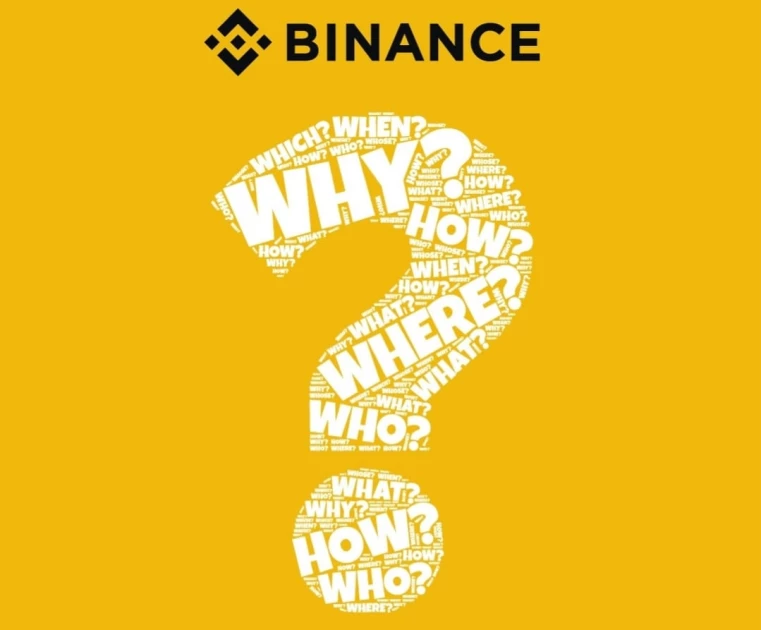Binance demystifies crypto for a new generation of traders in Kenya


Audio By Vocalize
When 21-year-old Kenyan university student Njeri Mwangi opened her first crypto account early this year, she had one question: “Where do I even start?”
She wasn’t alone. Thousands of new users in Kenya’s fast-growing crypto community turned to X (formerly Twitter) since October, asking similar questions during Binance’s #AskBinanceKE live digital campaign.
In a region where curiosity about digital finance often outpaces understanding. Through education and safety initiatives, Binance helps Africa’s next generation of investors navigate the growing crypto ecosystem.
The most common question on X was, “I’m new to crypto and just opened a Binance account. What’s the best way to learn how to trade without risking my money?” Binance’s response was straightforward: start with knowledge, not capital.
The company pointed users to Binance Academy, a free platform with videos, articles, and quizzes. Beginners can try Binance Lite, a simplified app mode, or practice Spot and Futures Mock Trading — a risk-free simulation.
Binance acknowledged the rise of online trading scams and fake
signal groups that prey on new users. Its response: education and vigilance.
The exchange said it employs 24/7 monitoring systems and an anti-scam awareness campaign across Africa that teaches users how to verify official Binance channels, avoid suspicious links, and report fraudulent behaviour. Every verified Binance channel, the company stressed, carries a gold checkmark on X, a small but vital cue for authenticity.
When asked, “What’s the safest way for a beginner to store their crypto after buying it on Binance?” The company encouraged users to secure their assets with the Binance custodial wallet, which features multi-layered protection, including two-factor authentication (2FA) and withdrawal whitelists.
“For those managing their own keys, Binance supports Trust Wallet, a self-custody app giving full control. ‘Safety starts with protecting your login credentials and enabling all security features,’ the company explained.
Binance cautioned against chasing trends. “Start with established cryptocurrencies such as Bitcoin (BTC), Binance Coin (BNB) and Ethereum (ETH), assets with proven market history,” its education team advised. Beginners can use the “Top Movers” and “Market Overview” sections on the Binance app to understand trends, but are urged to research each project’s use case before investing.
Asked whether Binance offers a demo trading feature, the answer
was yes: Binance Futures Mock Trading allows users to simulate live trades with
virtual funds.
As for affordability, Binance said Kenyans can start trading with as little as $10 (around KSh 1,300).
And in a nod to the region’s mobile money culture, Binance confirmed that integration through its p2p platform allows direct buying and selling of crypto using local currency, no external wallet required.
“Once you make profits,” Binance explained, “you can cash out via p2p or use the Sell Crypto option on the Binance app.” From there, users can send funds directly to a mobile money account or other local accounts, a feature that has fueled Binance’s popularity in Kenya, where over 90% of adults use mobile money services.
On a platform where social media often drives speculative trading, Binance addressed the concern: “How do I separate real market trends from hype?”
The company said it combats misinformation by publishing verified market insights, offering risk warnings, and hosting Binance Live sessions where experts explain market movements in context. “Don’t trade because something is trending on social media,” the Binance Africa team cautioned. “Trade because you understand its fundamentals.”
To the question, “Which strategy offers the most sustainable learning curve?” Binance’s answer emphasized time and temperament. Trading is short-term and requires active market monitoring. Investing involves buying and holding assets you believe in long-term. Staking, available on Binance Earn, lets users earn passive rewards on certain coins by locking them for a fixed period.
“For beginners,” Binance said, “start by learning, not earning.
Understand each method before committing funds.”
With over 410 coins listed on Binance, users wanted to know how to spot genuine projects. Binance urged beginners to focus on real-world utility, active development, and transparent teams.
The exchange recommends checking a project’s whitepaper, community activity, and audit reports before investing, and to use Binance Research, a free in-depth analysis tool designed to help users make informed decisions.
“How important is diversification in crypto?” one
user asked. Binance’s advice: “Don’t put all your funds into one coin.”
Binance’s portfolio tools help balance high-risk altcoins and stable assets. Even in digital markets, the golden rule remains: spread your risk
One user posed a deeper question: “How can Binance bridge the knowledge gap between traditional finance and decentralised systems for new African users?”
Binance pointed to its offline and online education programs, including campus tours, local webinars, and African-language tutorials, aimed at helping users understand not just crypto, but financial freedom through technology.
In 2024 alone, Binance says it trained thousands of Africans through its education initiatives. “The goal,” the company stated, “is not just to trade crypto, but to understand how blockchain can solve real economic challenges.”
From beginners to experienced traders, Binance offers tools and resources to explore crypto safely and confidently. Sign up to Binance now.


Leave a Comment